 Petzlover
Petzlover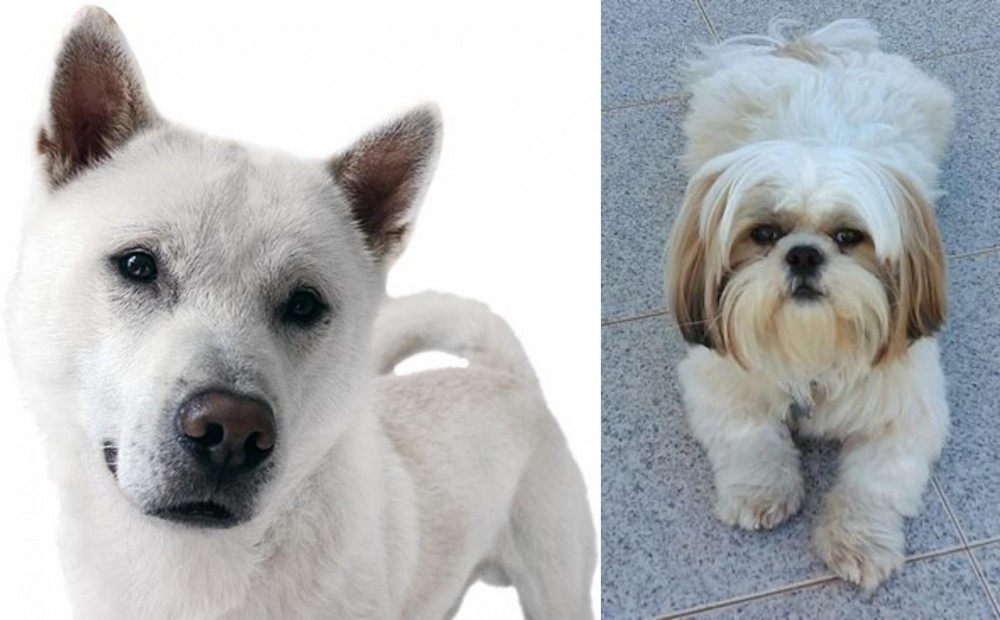 Kishu is originated from Japan but Shih Tzu is originated from China. Kishu may grow 28 cm / 12 inches higher than Shih Tzu. Kishu may weigh 20 kg / 45 pounds more than Shih Tzu. Kishu may live 5 years less than Shih Tzu. Both Kishu and Shih Tzu has almost same litter size. Kishu requires Moderate Maintenance. But Shih Tzu requires High Maintenance
Kishu is originated from Japan but Shih Tzu is originated from China. Kishu may grow 28 cm / 12 inches higher than Shih Tzu. Kishu may weigh 20 kg / 45 pounds more than Shih Tzu. Kishu may live 5 years less than Shih Tzu. Both Kishu and Shih Tzu has almost same litter size. Kishu requires Moderate Maintenance. But Shih Tzu requires High Maintenance
 The Kishu is a Spitz type hunting dog that originates from Japan. Many people believe he is a descendant of the wolf. Those who have studied the dog say that it has kept its genetic purity and that there has been very little cross breeding with other dogs.
The Kishu is a Spitz type hunting dog that originates from Japan. Many people believe he is a descendant of the wolf. Those who have studied the dog say that it has kept its genetic purity and that there has been very little cross breeding with other dogs.
The Kishu is also known as the Kumano Ken, a name given after the area the dog originated from. The breed was officially recognized and standardized in 1934, and is known as the Kishu Ken. In 1934 the dog was also designated a Living Natural Monument in Japan and is protected by law.
The dog is also included in the group ‘Asian Spitz and Related Breeds’ class of primitive dogs.
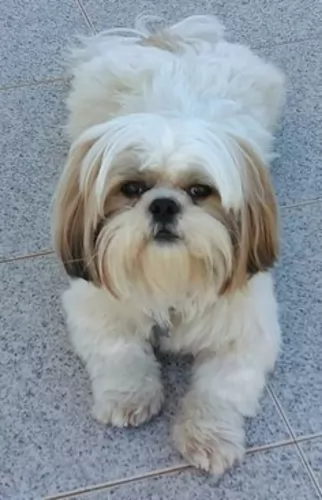 The Shih Tzu is an Imperial Chinese breed developed by palace breeders hundreds of years ago with breed stock from the Tibetan lines. It is quite probable that the Shih Tzu was originally a cross between two Sino-Tibetan ancient dogs – the Pekingese and the Lhasa Apso. Based on their looks, the Shih Tzu means the lion dog, but they were really very pampered palace dogs living with the Chinese emperors and families. The emperors were always gifting the breeders who developed the most affectionate, gentle and beautiful Shih Tzus.
The Shih Tzu is an Imperial Chinese breed developed by palace breeders hundreds of years ago with breed stock from the Tibetan lines. It is quite probable that the Shih Tzu was originally a cross between two Sino-Tibetan ancient dogs – the Pekingese and the Lhasa Apso. Based on their looks, the Shih Tzu means the lion dog, but they were really very pampered palace dogs living with the Chinese emperors and families. The emperors were always gifting the breeders who developed the most affectionate, gentle and beautiful Shih Tzus.
Until the 1930’s the Shih Tzu was not known to the world outside the emperor’s palace. Once the breed did come out from behind the palace walls, they were immediately popular. Much debate went on about how to refine the breed as clubs began to spring up in Peking and then in England. It was not until 1969 the Shih Tzu was recognized and entered in the AKC Stud Book.
While the original Shih Tzu might have been a mix between the Pekingese and the Lhasa Apso, today’s breed spread around the world after the second world war. In Europe in the 1930’s the breed was classified as Apsos. In 1935 the first Shih Tzu Club of Europe was formed, and the first standard was written, and the breed was categorized as the Shih Tzu.
Following World War II, soldiers brought the dogs to the States from Europe. By the 1950’s the breed was growing in popularity and the AKC recognized the breed in 1969 as members of the Toy Group. They are now recognized by all major kennel clubs throughout the western world. They are recognized by the Federation Cynoloqique Internationale in the Companion and Toy Group, among Tibetan breeds.
The Shih Tzu is a good watchdog, but it was bred to be a companion animal. It is a friendly, open breed that welcomes strangers. They are great with other animals and children as well as adults.
 The Kishu is a medium sized dog standing between 43 – 56cm in height and weight is between 14 – 27kg.
The Kishu is a medium sized dog standing between 43 – 56cm in height and weight is between 14 – 27kg.
He has a short, straight double coat which can be white, red or brindle. The dog has minimal shedding, making him an easy dog to groom.
The nose of the dog is black, but particularly with the white coated dogs, the nose can be brownish or pink in color. The ears are erect and pointed forwards and the tail is carried slightly curved over the dog's back.
The docile Kishu is no pushover and he is a strong minded, courageous dog. He is also an amicable dog breed, getting on well with his human family as well as with other dogs in the home.
He is somewhat aloof and reserved around strangers. Even though he is a docile dog, it is a good idea to have him trained and socialized so that he can be obedient and balanced in all situations.
He is intelligent and learns easily. An interesting aspect with the Kishu Ken is that he likes to take in everything going on from a vantage point, often seeking out a higher spot from where he can look about.
Kishu Kens like to keep an eye on whatever is going on, and sometimes he looks for a high place so that he can survey everything. They can be aloof or shy around strangers.
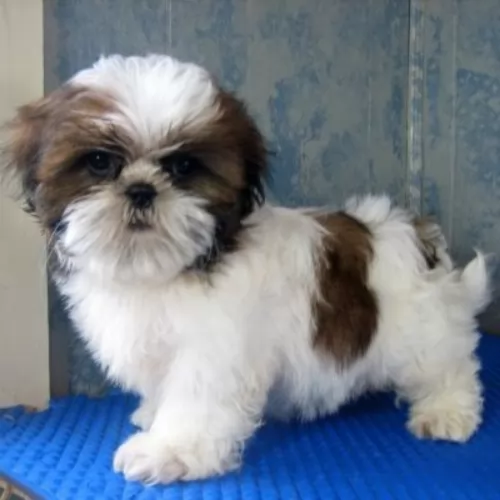 This is a breed of lively, sturdy and alert little dogs with a beautiful double coat that is flowing and long. In its full glory the Shih Tzu coat is touching the floor all the way around the dog. The dog’s bearing is as royal as its history, arrogantly carrying his head high and his tail curving over his back.
This is a breed of lively, sturdy and alert little dogs with a beautiful double coat that is flowing and long. In its full glory the Shih Tzu coat is touching the floor all the way around the dog. The dog’s bearing is as royal as its history, arrogantly carrying his head high and his tail curving over his back.
The Shih Tzu is a solid, compact breed with weight and substance. They may be a small dog, but they are a strong one. They have large dark eyes with a short muzzle and fur covered drop ears. They are just a little longer than they are tall with a distinct underbite.
There are a few differences between the European or UK Kennel Club standard and the American Kennel Club AKC standard. As opposed to the UK standard the AKC standard states that:
• The hindquarters are muscular while the front are straight. They are balanced in that they are not too long or too short.
 The Kishu is a hardy dog breed known for his exceptional hunting instincts and loyalty. He is a brave, clever, playful, tenacious dog eager to please his master.
The Kishu is a hardy dog breed known for his exceptional hunting instincts and loyalty. He is a brave, clever, playful, tenacious dog eager to please his master.
He isn’t so much a hunting dog anymore but is essentially a companion dog, bonding closely with his human family. He will get on well with children and pets in the home, but more so when he has been trained and socialized.
Apart from making a splendid companion, the Kishu promises to be an excellent guard dog to anyone who threatens his human family.
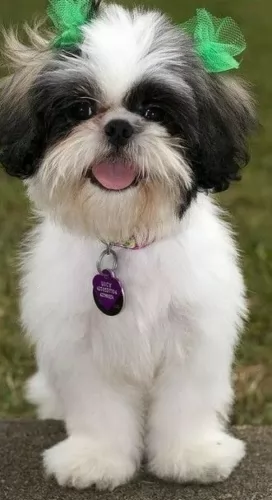 2.Special talents – they were bred to be companion animals. They are friendly and loyal.
2.Special talents – they were bred to be companion animals. They are friendly and loyal.
3.Adaptability Yes very much so. They can live in an apartment or on a farm. It doesn’t matter and they don’t need a yard.
 Before you bring a new puppy or rescue dog into your home, you must be prepared for the responsibility of a dog. If you're just simply looking for a watchdog to stick into your backyard, you're being cruel.
Before you bring a new puppy or rescue dog into your home, you must be prepared for the responsibility of a dog. If you're just simply looking for a watchdog to stick into your backyard, you're being cruel.
A dog is a social creature and you need to spend time with them and care for them. Sometimes he can get sick and then you may need to get him to the vet.
Some of the illnesses your Kishu can get will be easily treatable, while others may be life-threatening and require surgery.
The health of your dog will depend a lot on the food you provide it with as well as your lifestyle. Common dog health problems can range from typical eye- and ear infections to bloat, hip dysplasia and cancers.
The thyroid gland doesn’t produce enough thyroid hormone which can lead to other health problems such as tiredness and weight gain. A daily thyroid pill from the vet can help sort this issue out.
This is a common health problem, seen more in older dogs. Your once active dog will move around slower and battle to stand up after lying down.
Arthritis can’t be cured but you can alleviate the pain and suffering. Your vet will tell you that diet and nutrition are important factors to ward off arthritis in the first place.
If your dog has arthritis and is in pain, get him to your vet who can prescribe medications to alleviate the symptoms.
This is a respiratory infection which can be transmitted from one dog to another. You’ll notice coughing, tiredness, runny nose and watery eyes and loss of appetite. Take him to your vet who will know what to do to speed up recovery for your pet.
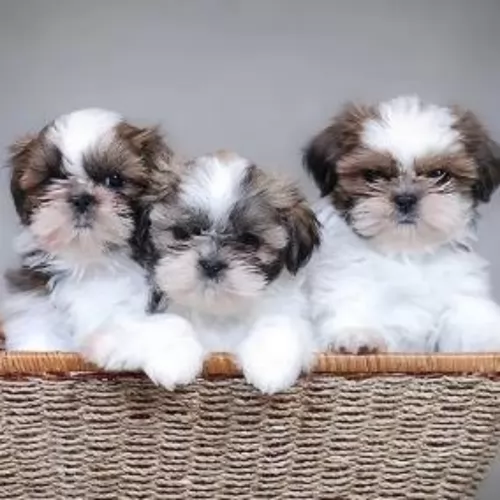 For many breeds that have the advantage of isolation like the Shih Tzu did with the emperors of China usually have very little genetic health issues. Most of the breed is indeed healthy but there are some issues.
For many breeds that have the advantage of isolation like the Shih Tzu did with the emperors of China usually have very little genetic health issues. Most of the breed is indeed healthy but there are some issues.
• Brachycephalic airway obstructive syndrome due to the shape of their face and head causes them to have breathing issues. They cannot handle heat and they cannot swim. They can have an upper airway obstruction that makes it hard for them to breath. If this is bad enough, surgery may be required.
• Hypothyroidism – thyroid does not produce the hormones necessary for metabolism to work effectively. This can lead to weight gain, hair loss, lethargy and muscle loss. It can be treated effectively.
• Issues of the eyes include – cataracts, corneal dryness and inflammation, progressive retinal atrophy, improperly closing eyelids and retinal detachment.
 The Kishu will need to be brushed twice a week to keep the coat free of dust and loose hairs. Their ears should be checked regularly too for wax build up and dirt as ear infections are a common dog illness.
The Kishu will need to be brushed twice a week to keep the coat free of dust and loose hairs. Their ears should be checked regularly too for wax build up and dirt as ear infections are a common dog illness.
Their nails should also be trimmed regularly. Take him regularly to have his teeth cleaned because dental problems can put his entire body at risk for disease.
The Kishu needs a good sized garden to roam. He is best suited to country life because he needs regular exercise. If he lives in the city, put him on a leash and take him for walks.
Apart from exercise, good food is imperative as nutritious food contributes to longevity. Top quality food and the right size portions can ensure lean, energetic, happy, healthy dogs.
Take trouble to understand the ingredients listed on the commercial dog food packaging. Generally the low quality, processed commercial foods are inflammatory.
Even if you go for the top brand kibble, don’t just provide your pet with dry kibble night after night. Mix in some cooked chicken, brown rice and vegetables.
Remember too, that fresh whole foods such as vegetables have live enzymes and are packed full of fiber which is so necessary for digestion. A good diet with fresh, cool water is guaranteed to provide an excellent dimension to your pet’s health.
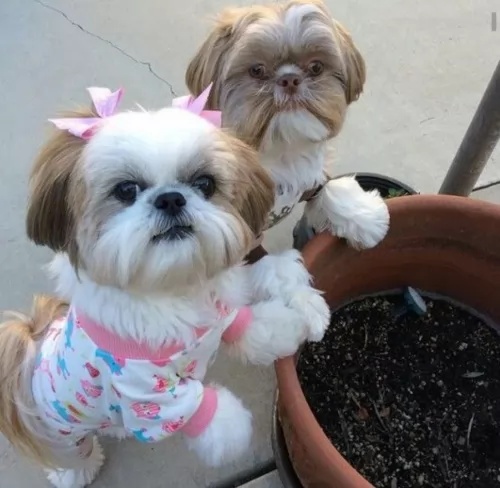 1.Feeding the puppy – this is a toy dog so don’t overfeed. They have a tendency to become obese. Calorie and weight level need to be calculated with any diet you feed. The diet should be high quality with plenty of protein made for toy dogs. Feed the puppy at least 3 times a day, maybe four in very small amounts, never more than ½ cup per day.
1.Feeding the puppy – this is a toy dog so don’t overfeed. They have a tendency to become obese. Calorie and weight level need to be calculated with any diet you feed. The diet should be high quality with plenty of protein made for toy dogs. Feed the puppy at least 3 times a day, maybe four in very small amounts, never more than ½ cup per day.
2.Feeding the adult - this is a toy dog so don’t overfeed. They have a tendency to become obese. Calorie and weight level need to be calculated with any diet you feed. The diet should be high quality with plenty of protein made for toy dogs. Feed the adult once or twice a day in larger amounts than the puppy but never more than ¾ of a cup per day.
3.Points for Good Health - most Shih Tzu’s are hardy with exceptionally good health.
This is a pampered, not high energy dog. However, she still needs playtime, which can be indoors and short walks outdoors every day.